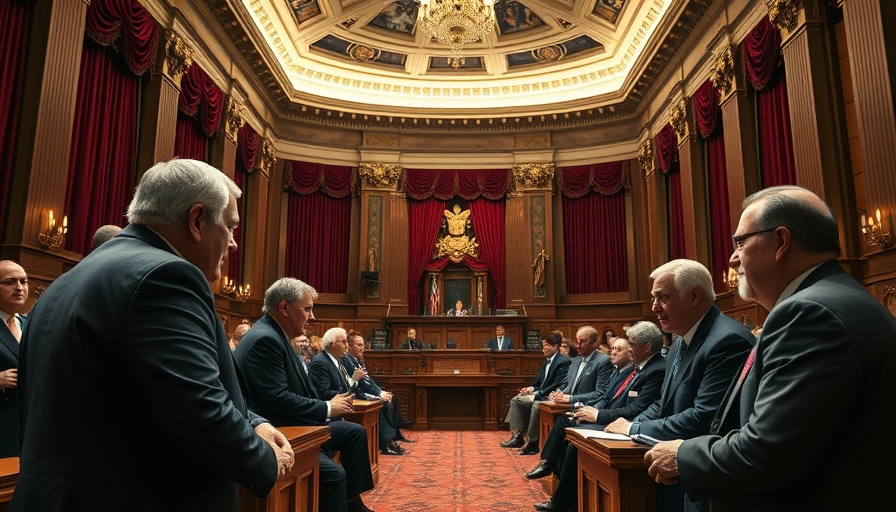
From Disillusionment to Empowerment: California's Political Shift
In a political landscape that seems to change overnight, few events have impacted the Democratic Party in California as profoundly as Donald Trump's unexpected victory in 2016. The election woke many Democrats from complacency, forcing them to reassess their strategies and reconnect with the Constitution's core tenets, as well as their constituents. This shift has led to a new exploration of California's constitutional conventions as a way to adapt to today's challenges and restore faith in democratic processes.
Lessons Learned from 2016
Trump's presidency sparked a wave of activism across the nation, including in California, where Democrats realized their traditional electoral strategies might not be enough. As voter turnout soared in the subsequent elections, it became clear that addressing the evolving political climate required reconsideration of how California's constitution empowers and protects its residents.
The Necessity of Constitutional Conventions
With recent discussions around a constitutional convention in California, this political awakening allows Democrats to redefine their vision for the state. A constitutional convention could potentially address pressing concerns, from housing affordability to environmental issues. By proposing amendments directly related to constituents’ pressing needs, Democrats aim to reconnect with voters disillusioned by the political status quo.
A Historical Perspective: Past Conventions in California
California has a rich history of constitutional conventions, the most notable occurring in 1879. These conventions shaped the state's governance structure and were instrumental in addressing the political needs of that era. Today, as citizens face multiple challenges, California's Democratic leaders are considering whether a similar approach might help refine governance and enhance public trust.
Engagement: The Role of Community in Constitutional Conversations
One especially poignant aspect of these discussions is the emphasis on community engagement. In an era where political polarization is rampant, including voices from various neighborhoods, especially areas like Bakersfield, can reshape how convention proposals are conceived. Engaging grassroots efforts holds the potential to create a truly representative dialogue that reflects the diverse opinions of constituents.
Future Predictions: What Could a Convention Achieve?
While many are cautiously optimistic, there are opposing views on how effective a constitutional convention might be. Advocates envision ambitious reforms that address equity in housing, environmental regulations, and voting rights. Critics, however, warn of unintended consequences—what if established protections for marginalized communities were jeopardized in the process? These valid concerns lead to deeper conversations about the democratic process and the safeguards necessary to protect vulnerable populations.
Understanding the Political Stake
This growing interest in constitutional conventions reflects the urgent need for accountability in governance. If California's Democrats succeed in convening a convention, it could set a precedent for other states, amplifying the voices of citizens in crafting their laws. As the next elections approach, it becomes paramount for both elected officials and constituents to engage in these conversations actively.
Final Thoughts: A Call to Action
The conversation surrounding California's constitutional conventions is just beginning. It’s imperative for residents of Bakersfield and beyond to stay informed and involved. Attend town hall meetings, engage in discussions regarding proposed amendments, and voice your opinions to elected representatives. The potential to influence the democratic process exists, but it requires active participation from everyone. By aligning with like-minded neighbors and advocating for change, we can create a California that truly reflects the interests and needs of its people.
 Add Row
Add Row  Add
Add 



Write A Comment